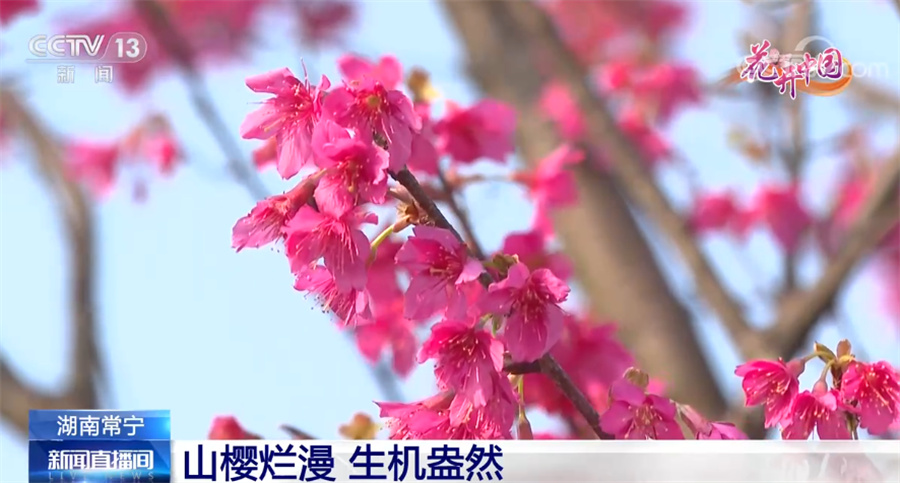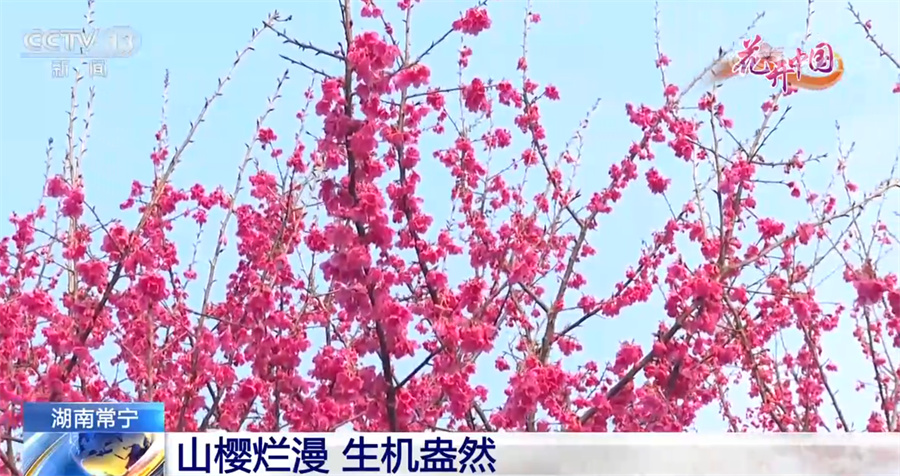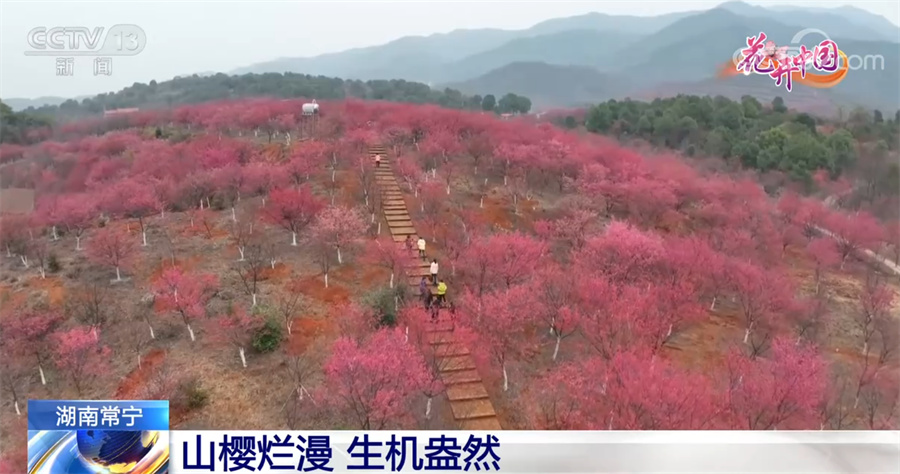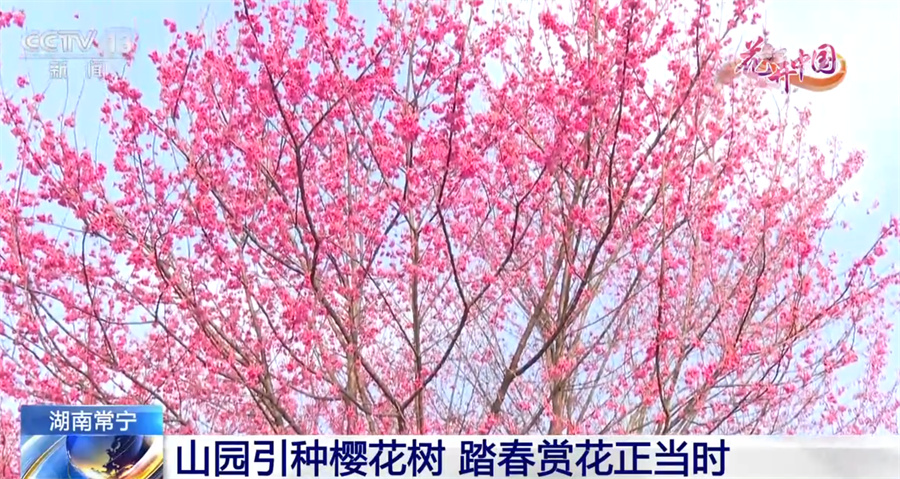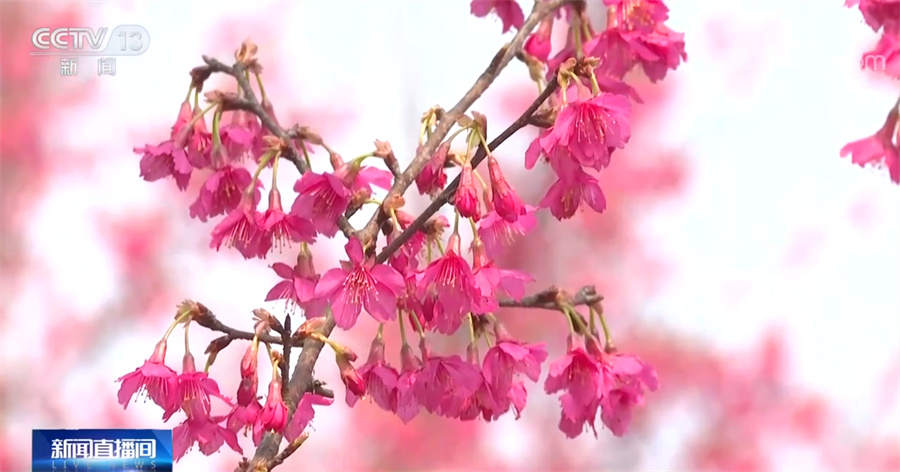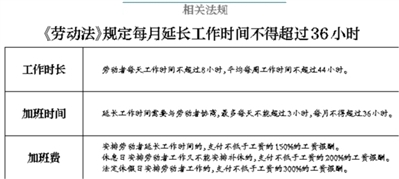In October 2023, the European Biodiesel Commission (EBB), representing European biodiesel producers, filed an anti-dumping complaint with the European Commission and launched an investigation in December 2023. On July 19th, 2024, the European Commission proposed to impose a temporary tariff of 12.8% to 36.4% on China biodiesel exported to the EU, which will be implemented in mid-August, 2024. The investigation is expected to last until February 2025, when the final anti-dumping duty will be determined for five years.
From what has been disclosed, waste edible oil (UCO) and biological carrier (SAF) are temporarily excluded from the scope of anti-dumping. However, EBB is deeply worried about the EU’s unexpected exclusion of the dumped China biological aviation media (SAF) from these temporary measures. EBB will remain committed to the European Commission to solve the unfair trade problems of SAF producers from China, otherwise it will seriously damage the industry and lead to future dependence on China. The European Commission has indicated that it will continue to work to restore a level playing field in the EU and will urge it to be extended to SAF.
At present, although SAF from China is excluded from the temporary anti-dumping tariff, it may still face anti-dumping measures in the EU in the future, and relevant enterprises in China should take precautions.
Biodiesel is a biofuel made from vegetable oil or animal fat, also known as green new energy, which is divided into first-generation biodiesel (ester group) and second-generation biodiesel (hydrocarbon group). At present, ester group is the mainstream product in China, while hydrocarbon group represents the future development trend. In 2023, the capacity of biodiesel in China is 3.7 billion liters/year, the output is 3.3 billion liters, the consumption is 850 million liters, and the capacity utilization rate is 89.2%.
According to statistics, in 2023, global biodiesel consumption increased to 46.31 million tons. In terms of consumption, the largest biodiesel consumption area in the world is the European Union, accounting for 34.65% of the total global biodiesel consumption, followed by the United States, Indonesia, Brazil, Thailand, Argentina and China, accounting for 20.72%, 17.32%, 12.31%, 3.61%, 1.13% and 1.06% respectively.
According to the statistics of the European Biodiesel Committee (EBB), China enterprises exported about 1.8 million tons of biodiesel to the EU in 2023, accounting for 90% of China’s total exports. At present, more than 80% of biofuel raw materials in the EU are imported, of which China accounts for 60%. This data shows the penetration of China biodiesel in the EU market and its importance to the EU energy structure.
Influence of EU’s anti-dumping measures on China’s biodiesel export enterprises
In response to the EU’s anti-dumping policy on biodiesel, He Yongqian, a spokesman for the Ministry of Commerce, said: On July 19th, the European Commission released the preliminary findings of its anti-dumping investigation on biodiesel in China, and proposed to impose provisional anti-dumping duties on biodiesel imported from China. China is highly concerned about the protectionist actions of the European side in the biodiesel industry. China has always advocated the rational and prudent use of trade remedy measures, and urged the European side not to rashly adopt protectionist measures and resolve mutual concerns through dialogue and consultation with China. The EU is the largest consumer of biodiesel in the world. The purpose of importing biodiesel from China is to meet the huge consumer demand in the EU market and accelerate the realization of its own green transformation and energy conservation and emission reduction goals. China has repeatedly stressed that European taxation measures will only raise the cost of related products, harm the interests of related industries and consumers in the EU, and undermine the green transformation process of the EU and the overall situation of China-EU economic and trade cooperation.
As an important export market of biodiesel in China, once the EU’s anti-dumping policy is implemented, it will greatly affect the export cost and competitiveness of China enterprises, and have a greater negative impact on the faltering biodiesel industry in China.
First of all, it threatens the development space and living space of some enterprises. For China biodiesel export enterprises that rely on the European market, the sales dilemma they may face in the short term will directly affect their profit margins and benign operation ability.
Secondly, competition in the international market has intensified. The implementation of anti-dumping duties may prompt local biodiesel producers in the European Union to increase their productivity, so as to fill the market space left by the restriction of China products and further reduce the international market share of China enterprises.
Third, technology and innovation have become new driving forces. Facing the market challenge, China biodiesel enterprises are forced to increase R&D investment, improve product performance and competitiveness, explore diversified application fields of green energy, and expand non-traditional markets, so as to offset the pressure brought by anti-dumping to some extent.
Influence of EU’s anti-dumping measures on China’s biodiesel industry chain
After the introduction of provisional anti-dumping tariffs by the European Commission, the major enterprises in the industry were not shocked because of the long-expected market.
Haixinengke, Jiaao Environmental Protection, Langkun Environment, Zhuoyue Xinneng and other enterprises have said that the temporary tariff imposed by the EU has had a certain impact on the company’s biodiesel export to the EU market in the short term, but in the long run, the overall impact is limited.
According to public information, the main countermeasures of enterprises are the Eight Immortals crossing the sea.
Haixin Nengke: 1. Actively expand the market outside the EU. 2. Improve the product mix to meet the needs of market segments with customized products. 3. Do a good job in the pilot demonstration project of biodiesel popularization and application of the National Energy Administration in Beijing. 4. Further expand other domestic application scenarios. 5. Accelerate the airworthiness certification of biological aviation media (SAF). 6. Accelerate the construction of Shandong Sanju 200,000-ton heterogeneous project.

Shandong Sanju Bio-energy Co., Ltd. (subordinate enterprise of Haixin Nengke)
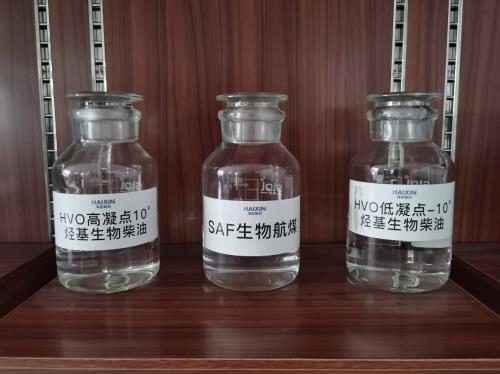
Hydrocarbon-based biodiesel and bio-jet fuel
Jiaao Environmental Protection: 1. Continue to process bio-based plasticizer and other products. 2. Actively develop the domestic application scenarios of biodiesel and expand the domestic sales market. At present, the company has signed a strategic cooperation framework agreement with China Marine Fuel Co., Ltd., which will jointly open up a low-carbon market in the transportation field. 3. Actively accelerate the construction and commissioning of Lianyungang SAF project.
Zhuoyue Xinneng: 1. Establish an international network system for recycling waste oil resources; Promote the construction of Saudi biodiesel, HVO and SAF production bases. 2. Marine fuel blending and international trade of biodiesel.
Langkun environment: 1. Direct sales of raw oil (UCO). 2. Biodiesel products are upgraded to improve their competitiveness. 3. Start the ship fuel market. 4. Promote the pilot demonstration of domestic biodiesel popularization and application. 5. Promote the incorporation of biofuels into the domestic carbon trading market system. 6. Change the direction of overseas markets, increase the development of biodiesel markets in Southeast Asia, Japan, South Korea, the Middle East and other non-EU regions, and reduce the dependence on the EU market.
For China’s biodiesel industry, the loss of the EU, an important market in the short term, will inevitably hit its exports. Although China has a huge domestic market as its support, the loss of income and market share caused by losing the EU market in the short term cannot be ignored. In order to cope with this situation, China biodiesel exporters may need to find other alternative markets or re-evaluate their production and management strategies to adapt to the new international trade environment.
For the EU market, the imposition of anti-dumping duties may lead to an increase in the import cost of biodiesel, thus pushing up the price in the local market. Although this move will help to protect local industries in the short term, in the long run, it may affect the EU’s renewable energy targets due to reduced supply. Especially considering the key role of the EU in the green transformation, how to protect local industries while maintaining the support for clean energy and the stability of the supply chain is a big challenge.
The Future of Biodiesel Industry in China under Anti-dumping
From a global perspective, with the improvement of environmental awareness and the promotion of carbon neutrality, biodiesel, as a renewable energy, still has broad market prospects. Although trade barriers such as anti-dumping duties will have an impact on the short-term market, enterprises can respond by improving product quality, optimizing cost structure and strengthening international cooperation. In addition, policy orientation will also have an important impact on industrial development. For example, policy support for biological aviation media will encourage more enterprises to invest in research and development and production of high value-added environmentally friendly fuels.
From the perspective of the long-term development of biodiesel in China, the author believes that the EU’s anti-dumping measures are not a bad thing, forcing China’s biodiesel industry to upgrade, the domestic market to glow with endogenous power, and the international market to diversify.
First, the domestic supply of raw materials is insufficient, and the layout of raw materials is accelerated. According to the estimated output of refined edible oil in China in 2020, which is 54.76 million tons, considering the consumption pattern, resource concentration, collectable range and other factors, the actual waste edible oil available for collection is about 6 million to 8 million tons. According to incomplete statistics, at present, the collection and utilization of catering waste oil in China is about 3 million tons, of which about 1.5 million tons are used to produce biodiesel, about 900,000 tons are exported, and some of them are used in leather processing and daily chemical washing industry. Due to China’s bioenergy industry policy of "not competing with people for grain and not competing with grain for land", the raw material source of biodiesel has lagged behind the current capacity of biodiesel industry. According to the Biodiesel Industry Development Policy [2014] No.511 issued by the National Energy Administration on November 28, 2014, bioenergy raw materials are encouraged to expand into the fields of non-edible grass/woody oil and microalgae. China Forestry and Environment Promotion Association has set up a bioenergy branch to lead the industry in exploring related fields.
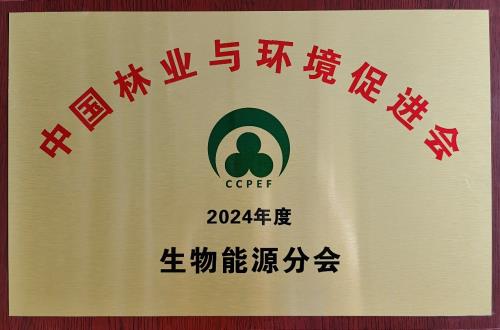
The second is technological innovation to further improve product competitiveness. Enterprises can start with medium and long-term strategies, accelerate technological innovation and increase the added value of products. By optimizing the production process, we can reduce the cost, innovate the application fields of products, further improve the production process of hydrocarbon-based biodiesel and bio-aviation coal, and enhance the competitiveness of products.
The third is to speed up the development of the domestic market, expand application scenarios, and stabilize the industry through internal circulation. Accelerate the construction of domestic application scenarios and cultivate the domestic market. Give policy, financial and technical support to promote the development and strengthening of biodiesel industry.
1. Accelerate the development of the domestic market.
On November 13, 2023, the National Energy Administration issued the Notice of the National Energy Administration on Organizing the Pilot Demonstration of Biodiesel Promotion and Application (Guo Nengfa Technology [2023] No.80), which pointed out that biodiesel is a renewable energy produced from biomass such as waste oils and fats, and it is an internationally recognized green and clean fuel, which has been widely valued by the international community. The Renewable Energy Law clearly states that the state encourages the production and utilization of bio-liquid fuels. The "14th Five-Year Plan" for Modern Energy System also requires the vigorous development of non-grain biofuels such as biodiesel. Carrying out the pilot demonstration of biodiesel popularization and application is a useful measure to implement the decision and deployment of the CPC Central Committee and the State Council, promote the energy revolution and ensure energy security, and a powerful means to promote the recycling of waste and ensure the safety of people’s dining tables.
On March 29th, 2024, 22 enterprises in China entered the pilot demonstration project of biodiesel popularization and application.
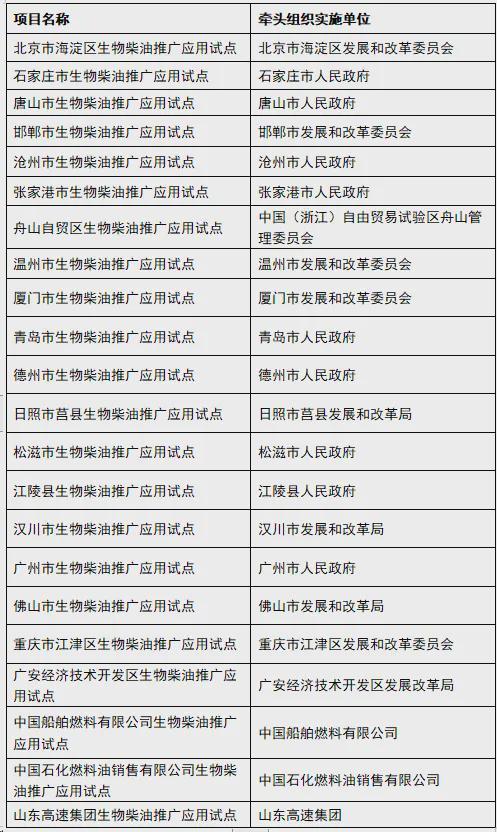
2. Expand application scenarios.
As a sustainable shipping solution, bio-ship combustion (marine bio-fuel) has broad application prospects and great development potential. With the continuous progress of technology and the support of policies, bio-ship combustion is expected to become one of the important development directions of shipping industry in the future.
The International Maritime Organization proposes that in 2030, the total annual greenhouse gas emissions from international shipping should be reduced by at least 20% compared with 2008, and strive to reduce by 30%; By 2040, the total annual greenhouse gas emissions from international shipping should be reduced by at least 70% compared with 2008, and strive to reduce by 80%. In this context, major shipping companies are exploring green fuels. Biodiesel has become one of the most realistic choices for international shipowners in the short term because of its sustainable environmental protection and easy access.
B24 Bio-Ship Combustion is a kind of green marine fuel made from biomass resources such as vegetable oil, animal oil or waste edible oil. B24 represents the maximum ester content of 24%. Compared with traditional fuels, B24 bio-ship combustion can reduce carbon emissions by about 20%, which is helpful to promote energy saving and carbon reduction and green and low-carbon transformation in the shipping field. In addition, B24 bio-marine fuel has the advantages of flexible supply and simple operation, which is completely compatible with modern marine engines and can be used on existing ship types without technical, safety or design adjustments. Compared with clean marine energy such as liquefied natural gas and methanol, B24 bio-ship combustion has unique advantages.
B24 bio-ship combustion has been popularized in practical application. For example, at 5 o’clock in the afternoon of October 9, 2023, under the supervision of maritime patrol boats, the oil tanker "Sijie 21" worked at Mazhi Anchorage in Zhoushan, Zhejiang Province for about 4 hours, completing the fuel supply for a China-Hong Kong container ship "NEW MING ZHOU 60" about 325 tons of B24 bio-ship. This marks the successful landing of the "ship-to-ship" biofuel filling operation of the first single container ship at sea anchorage in China in Zhoushan Port, Ningbo, the world’s largest port.
China Ship Fuel Europe Co., Ltd., a subsidiary of China Ship Fuel Co., Ltd., successfully supplied ISCC-certified B20 biofuel to COSCO Sagittarius in Rotterdam, the Netherlands. This is the first single marine biofuel refueling service for COSCO Shipping Group’s fleet, and it has also achieved a breakthrough in zero refueling of green and low-carbon energy for the company’s fleet in Europe.
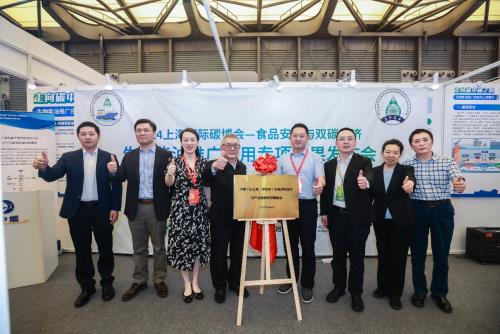
China (Yangtze River Delta East China) Biofuel Technology and Industry Development Alliance Preparatory Inaugural Meeting
In order to further promote the application of biodiesel in the field of ships, the Preparatory Committee of China (Yangtze River Delta-East China) Biofuel Technology and Industry Development Alliance was formally established in Shanghai. The Preparatory Committee of the Alliance, led by the Shanghai Food Safety Federation, will jointly explore and implement the demonstration application of biodiesel in the whole process and industry chain in Shanghai, Yangtze River Delta and even East China, promote the green transformation of China’s shipping industry and open a new chapter for biodiesel’s "going to the sea".
Besides ship combustion, there are other application scenarios to be developed.
3. The revision of mandatory national standards for opening the domestic market for biodiesel is also in full swing.
At the request of the National Energy Administration to revise the GB GB25199-2017《B5 Diesel Oil as soon as possible, the National Technical Committee for Standardization of Petroleum Products and Lubricants held a kick-off meeting on the revision of the national standard B5 Diesel Oil in Beijing on March 22, 2024. It can be expected that the innovation and development of biodiesel will enter the fast lane with the promulgation of the landmark mandatory national standard for biodiesel blending oil.
Fourth, vigorously explore emerging markets and reduce excessive dependence on a single market. Strengthen communication and cooperation with the international market, uphold the concept of sustainable development and actively integrate into the global green energy market. Diversified market layout spreads market risks and reduces dependence on a single market by developing markets in Asia, Africa, South America and other regions. At the same time, pay attention to the demand changes in emerging markets, flexibly adjust product and service strategies, and improve market adaptability.
Fifth, through mergers and acquisitions, we will expand our share in overseas markets, thus reducing the short-term pressure caused by anti-dumping duties. Try to avoid trade barriers by transferring production, and strive for tariff exemption by means of agency trade or transferring production. Reduce trade risks through diversified market strategies, and take the opportunity to establish closer economic and trade ties with other countries and broaden the space for international cooperation.
The sixth is to promote the carbon trading of biodiesel. Vigorously promote the introduction of carbon trading methodology for biodiesel from waste oils and fats, and promote the substantial carbon trading of biodiesel as soon as possible. Under the guidance of the "double carbon target", China biodiesel industry, which takes waste edible oils and fats and non-edible grass/woody oil as raw materials, will surely contribute more to "safeguarding food safety, guarding blue sky and white clouds, and serving the double carbon target".
Seventh, make effective use of rules to safeguard their own rights and interests. It is suggested that China biodiesel industry chain enterprises should actively communicate and consult with export agents or international trade teams, make complaints and respond according to international rules and procedures, and make full use of international trade mechanisms such as the World Trade Organization to safeguard their legitimate rights and interests.
Author: Song Jianguo
Executive Vice President of Bioenergy Branch of China Forestry and Environment Promotion Association
Executive Director of Beijing City Appearance and Environmental Sanitation Association and Director of Organic Waste Disposal Professional Committee
Vice Chairman of China (Yangtze River Delta East China) Bio-Ship Combustion Technology and Industry Development Alliance (to be established)
Transfer from: China. com
[Copyright and Disclaimer] All copyrighted works belonging to this website must be authorized to reprint and indicate the source of "China Industrial Economic Information Network". Otherwise, this website will reserve the right to pursue its relevant legal responsibilities. Reprinted articles and corporate publicity information only represent the author’s personal views, not the views and positions of this website. Please contact: 010-65363056 for copyright matters.
Extended reading











